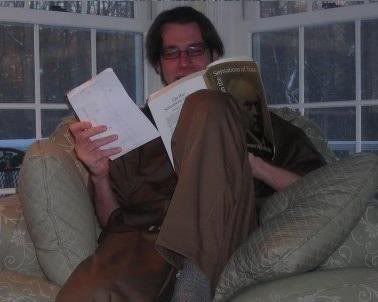Are numbers just a useful fiction, or are they real things that exist? It would seem that they have to be real because true things can be said about them, e.g., it is incontrovertibly true that there is no highest prime number, thus there are infinite prime numbers, thus there are numbers. The question is, what are they?
Two answers are:
First, they are abstract, not really tied to any material thing, although we can use them to help us think about material things. If so, then every number must equal 0. This is because in the abstract, there are an infinity of numbers, so any number X is really X/∞ = 0.
Otherwise, they are concrete and we can think of them as not tied to objects, but they don't really exist except in objects. If so, then every number must equal 1. Say there are 14 pencils in a bag. So I count them: 1/14, 2/14, 3/14 ... 14/14 = 1.
So all numbers equal either 0 or 1, which is absurd.
I think that the basis of mathematics is not the number but the ratio. Though we learn to count first, the order of learning is not the order of being, and the most basic mathematical operation is not addition, but division. I haven't worked out the details.
Tuesday, June 30, 2009
Thursday, June 18, 2009
The metaphor of the "foundations" of knowledge
When you build a structure it is essential that you build the foundation first; but when you plan a structure, you don't plan the foundation first: first you see what kind of structure it is, and then you decide on the kind of foundation you need. This is roughly analogous to the process of scientific discovery and its actual structure. We don't know what kind of foundation science needs until we know what the science has to say; but once we know a certain number of scientific data, we need to apprehend the foundations lest science be seen as a collection of unrelated facts.
Subscribe to:
Posts (Atom)
